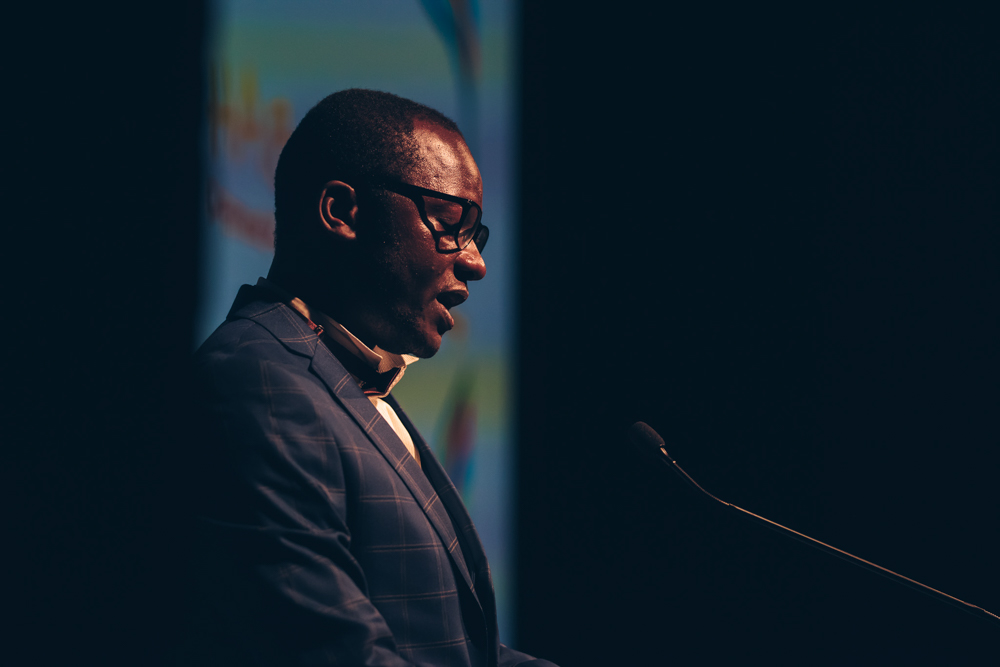The 8th of January 1912 saw the founding of the ANC, by key South African intellectuals, including author Sol Plaatje, poet John Dube, and editors Pixley ka Isaka Seme and John Langalibalele, in a small Wesleyan Church in Bloemfontein.
All four were writers, and one of the key tenets of the ANC was intellectual and creative freedom, as well as economic, political and social equality. The ANC is well known for its strong links with the unions, the miners, and with the Umkhonto We Siswe (MK, the armed wing).
What is less known is the firm commitment to promoting education, night classes and intellectual development: Walter Sisulu, Oliver Thambo, Hugh Lewin and Nelson Mandela all studied and/or ran informal classes for other prisoners whilst imprisoned. Helen Joseph, Albertina Sisulu and members of the Africa Resistance Movement also coordinated education township night classes through the struggle years. Peter Magubane (a photographer at Drum) and the Drum Magazine played a vital role in both exploring the everyday elements of apartheid, and vividly quashing the lies and misinformation of the apartheid regime.
Back the ‘80s and ‘90s, demonstrations were de rigeur. Even until the mid noughties strikes and actual demonstrations, with real people and real placards, were everyday occurences, particularly in Johannesburg. Free speech was visible, tangible.
Tweeting is changing this it seems. This week has seen the flourishing of all sorts of celebrations in South Africa commemorating the ANC’s birth, but also a remarkable burgeoning of criticism about the ANC, and where it’s going. Tweeting, which is significantly more common in South Africa than the rest of the Southern and Eastern region, is the new demonstration.
Relationships between South African media, and the ANC have becoming increasingly strained since the Information Act was passed late last year. The act seeks to curtail investigative journalism, and is viewed by many commentators as a major blight against what was originally an incredibly pioneering and free constitution. The South African twittersphere is ablaze with critical and sardonic comment on issues from the refusal of press passes to the local media, to clampdowns on reports critical of ANC leadership.
On Sunday (8 January) several journalists criticized President Jacob Zuma’s speech at a local stadium in Mangaung. “The story of Mangaung so far today. Two themes. How slowly Zuma is delivering his speech and how quickly people are leaving. Sigh,” tweeted Channel 403 news anchor Iman Rappetti. Reporting on Zuma’s speech, journalist Mandy Rossouw tweeted that “A faction in the crowd tries their best to distract Zuma, police sent in to stop them.” Zuma supporter Mthimkulu Mashiya responded, “JZ speech shaping up to be a powerful & inspirational one, must u concentrate on a few disruptive elements? C’mon now.”
Earlier, City Press Multimedia Editor Qhakaza Mthembu complained about the official decision to deny journalists access to the Wesleyan church where Zuma lit a symbolic torch. “Why would you invite the media if you gonna push us away and close church doors, I’m here to film the candle not the friggin doors,” she angrily tweeted. Mthembu then expressed her surprise at seeing an ANC spokesman lounging in the media pavilion, eliciting a sarcastic comment by @drphobophob: “Oh is Floyd Shivambu chilling in the media pavilion? I was pretty sure he hated our kind…1st rule of war=know your enemy.”
Zuma supporters were quick to retort: “All the reports I’ve seen, by both local and international media, about #ANC100 point out how the ANC has let itself go in recent years,” complained @Mabine_Seabe. “Y is the media focusing on what ANC is not doing, instead of celebrating with them,” asked @morudilebo. “What’s so hard for Media houses just to congratulate #ANC100 and stop talking about discontents of past 17 years?” said @mokhathi.
It wasn’t just the media who were critical of the ANC. “The #ANC pops champagne yet majority of South Africans struggle to access clean water. “tweeted @bekezeep. “At #ANC100 look out for all the dictators with murky Zuma…” tweeted @hebbiedodds. “LEADERS typically arrive in the latest range rover while the masses are ferried in belching buses,” tweeted @Ms_eazy. “Celebrating 100 years of what? Have we achieved the true victories set out in the Freedom Charter?” tweeted @SuGaRusHB. “Gotta wonder what #anc100 concert really cost us? How many houses schools or hospitals could we have built? How many kids could we have fed?” tweeted @TracyLeePurto. “Anc was started by theologians yet today its criminals that run it,” tweeted @MaqPaulM.
In a microcosm of the national debate, Zuma supporters confronted a twitterer called Hlomla Dandala for mocking the president. “Mangaung: Where tenderprenuers meet pantyprenuers,” read one of his tweets, a witty reference to corruption and sex scandals entangling several ANC leaders. Defending himself, Dandala tweeted to a handful of Zuma supporters: “In all democracies, presidents r criticised, ridiculed & mocked. That’s democracy.”
Even the National Director of Public Prosecution Menzi Simelane, couldn’t resist getting involved. Tweeting in his personal capacity, he said, “Good thing about real freedom is about making fun of your President, an elder, and a Statesman, without worrying about repercussions!” However, as the Committee for the Protection of Journalists points out, given pending criminal complaints by Zuma’s spokesman against two journalists, as well as other potential media prosecutions, repercussions against investigative reporting can be expected.

